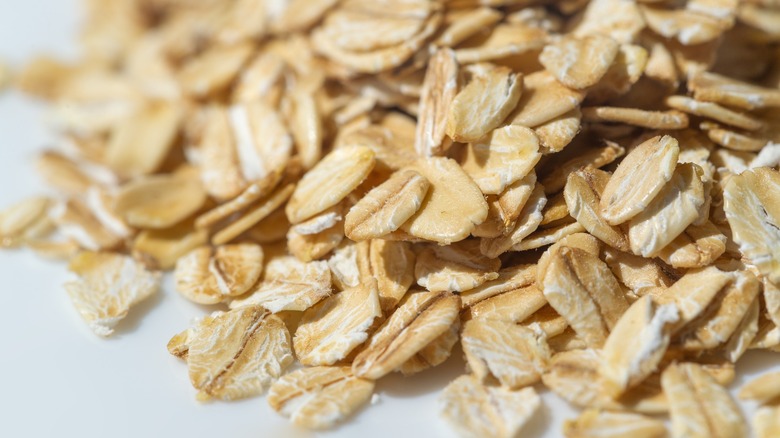The Reason You Shouldn't Pour Oatmeal Down The Drain
There is a long list of foods (and other things) that should never go down your kitchen drain. While doing it once won't be enough to ruin your pipes nor mean you need to call to the plumber, you'll want to avoid taking the risk at all costs as the result can be very unpleasant. According to Benjamin Franklin Plumbing, some foods to avoid are fats and oils, eggshells and bones, fibrous vegetables, and — above all else — foods that expand when they come into contact with water, such as oatmeal.
You know that particularly thick texture oatmeal acquires after it gets wet? As stated by Professor Amos, once it dries, oatmeal becomes "like cement, blocking your pipes and resulting in a plumbing emergency". This means that the oatmeal itself is unlikely to clog the pipes, but it is likely to stick to any surface it comes into contact with. After a while, it will probably keep sticking to itself (and possibly to other things) and eventually result in a situation that will be difficult to sort out without professional help.
This is how you should get rid of your oatmeal
First things first: when it comes to disposing of oatmeal, it all depends on what you used the oats for to begin with. Of course, if you took a relaxing oatmeal bath (yes, they exist; yes, they're very cool) you'll have to get rid of the leftovers as there's not much you can do with them. Simply picking them up and throwing them away will be enough to keep them out of your pipes.
On the other hand, if you did indeed cook your oatmeal, the good news is that you shouldn't worry so much about throwing it away, as oatmeal is usually a very easy food to preserve. According to Simply Oatmeal, cooked oats can be safely stored for three to five days in the refrigerator and up to three months in the freezer. It is even possible to dehydrate cooked oatmeal and store it in sealed containers for up to three months as well, if that is your preferred storage method of choice.
So now you know oats have plenty of uses ... and if you're not careful enough, clogging a pipe can become one of them.

